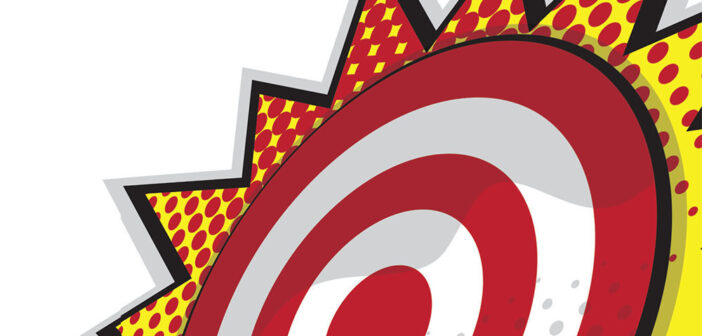As the hospitality industry recovers, hoteliers are re-evaluating many aspects of their operations to get back on target
Facing a national labor shortage, higher wages, lingering concerns about viral transmission, and depleted reserves, hoteliers are seeking ways to meet guests’ expectations while also trimming costs. Not surprisingly, technological upgrades are central to those efforts, according to Michelle Russo, founder and CEO of the Providence, RI-based hotel management and consulting firm hotelAVE.
“Generally speaking, COVID-19 just accelerated existing trends, including technology adoption and modifications to brand standards,” Russo said. “There’s a lot more willingness and open-mindedness to technology adoption, and hotel brands have observed that technology adoption doesn’t compromise the guest experience and guests’ ratings of their experience. I think that’s big and important.”
Adoption of keyless entry using smartphones and QR codes will continue to accelerate, raising the question of whether hotels really need front desks. Many guests will use this technology to check in before they arrive at the hotel, so “you don’t really need the formality of a front desk with the way technology is going,” Russo said.
Instead, hotel workers can greet guests in the lobby and check them in using iPads. And since they aren’t tethered to the front desk, they can perform other duties as time allows, according to Alex Alt, Senior Vice President and General Manager of Oracle Hospitality, which provides technology solutions to the industry. Making workers more mobile can help hoteliers get by with fewer employees, but it also requires them to continue the cross-training programs that proved so valuable during the pandemic.
TRUTH HITS EVERYBODY
“What’s top of mind for every hotelier right now is doing more with less,” Alt said. “There were massive staff reductions due to COVID-19, and I think this concept of ’more with less’ is here to stay, and not necessarily by choice. When you have fewer employees and just as many guests, you have to find a way to be more efficient, and it’s largely agreed that technology is the enabler of that efficiency.”
Menu cards with QR codes will continue to replace printed menus in rooms and hotel restaurants, presenting several benefits to hoteliers, Russo said. Since menus are online, it’s easy to add or remove food options, showcase specials, and adjust prices, the latter of which is a vital consideration given that prices for many food products have been rising sharply or have become unpredictable.
Removing menus from rooms means housekeepers have one fewer item to clean and sanitize, and eliminating them from restaurants can mean a significant reduction in labor costs. Hosts may not be needed to seat guests, and with customers ordering and paying online through smartphone apps or tablets placed at each table, waiters are replaced by food runners, and fewer of them are needed, Russo said.
Airports are joining hotels in adopting this approach to food service, she said. Customers can specify exactly what they want and order it to their table location. The risk of viral transmission is reduced because customers don’t have to hand their credit cards to servers and sign receipts with their pens.
“With this shift from servers to runners, they can cover more ground in the restaurant, and the consumer can pay when they want to,” Russo said. “That’s an area where you can take a great experience and make it a negative experience if guests have to wait too long for their check, so this allows them to pay through the iPad or an app with a QR code.”
DON’T STAND SO CLOSE TO ME
Alt said that in addition to creating a more convenient guest journey, these technologies appeal to customers who remain concerned about the coronavirus. “I think there’s going to be some meaningful subset of travelers who will want to stick to that lower contact journey for some period of time,” he said.
Hotel brands are even questioning whether they need a restaurant at all, especially for urban locations that offer plenty of food options, Russo said. Many customers have embraced food-delivery apps such as DoorDash, Uber Eats, and Grubhub, so some hotels are considering scrapping their food service and leaving only the bar open. Guests can order a drink, grab some plates and flatware from a designated station, and sit down at a table to enjoy food that’s just been delivered.
“Customers can have whatever they want, and we’re not opening a kitchen and losing a lot of money,” Russo said. “It’s about affording people their preferred choices when they want them.”
 Yearning to travel
Yearning to travel
Oracle Hospitality recently commissioned a global survey of almost 5,000 consumers and 500 hotel executives to gauge the state of the travel industry. Here are some key findings:
- More than ¾ of North American consumers said a COVID-19 vaccination is very or somewhat important in giving them the peace of mind to travel.
- Almost ⅕ won’t get on a plane until they are fully vaccinated.
-
- 76% of consumers plan to travel within the next six months, and 24% plan to travel immediately.
- Consumers were twice as likely to say they’ll be traveling abroad in 2021 than last year. The share of travelers planning to stay within driving distance has fallen more than 50% in the past year.
- Seven out of 10 hotel executives are exploring opportunities for non-room revenue to recoup last year’s losses and better compete with short-term rentals like Airbnb. More than two-thirds of consumers are very or somewhat interested in purchasing products or experiences from hotels beyond the room.




